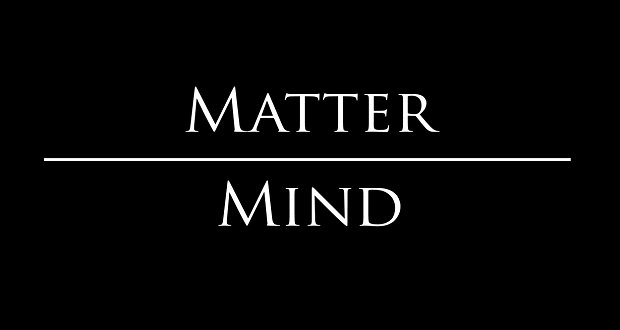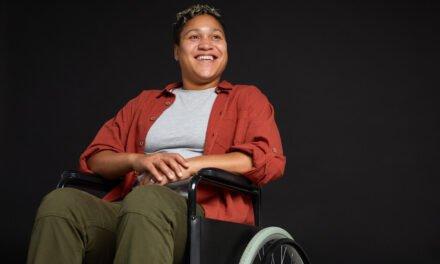
**Before getting into this week’s post, we want to explain our title choice for this series. We recognize that it is not grammatically correct, and we wanted to share why we made the intentional choice to use it. “There’s levels to this” comes from rapper Meek Mill’s song “Levels,” and has generally become a popular phrase in black, urban culture to denote the complexity of a situation or idea. In talking about systems, we want to honor the complexity of the topic, and we also wanted to do it in a way that celebrates a cultural understanding of that complexity, one that often stems from marginalized cultures for whom inequity is more prevalent, obvious, and consequential.
In last week’s post, we discussed the interpersonal level of systems and the importance of doing the work around self-awareness and asking questions like, Who am I? How did I become the person I am? What is my culture? What are my biases? We also discussed that interpersonal work requires us to explore not only our truths but other’s truths that may be different from our own. It is only in acknowledging that our truths are not necessarily the truth that we can move forward and begin to understand power, privilege and group identity.
The group level of systems encompasses the way that our personal cultural identities take on social meaning. It is the way that we organize ourselves and one another based on who we are and who we are not. The groups to which we belong determine what kinds of power and privilege we have, and as we think about the group level of systems, it is important to think about the ways that our biases and cultural backgrounds have larger implications on these group dynamics.
To delineate the groups that set the norms and values in our society versus those that tend to be marginalized by these norms and values, I will use the terms dominant and subordinated/non-dominant. These groups don’t just identify us with those who are similar to us; they identify us in relation to another person, another group, and another social identity. Below are some examples of dominant/subordinated groups in U.S. context (for more on social identity, see this post from our #StayWoke…Live Inclusively series.)
| Dominant Group | Non-Dominant Group | |
| Race | White | People of Color |
| Gender (identity) | Man (cisgender) | Woman (Cisgender), Transgender |
| Nationality | Citizen | Immigrant |
| Sexuality | Straight | Lesbian, Gay, Bi |
| Religion | Christian | Muslim (and other non-Western religions) |
| Ability | Able-identified | People with Disabilities |
As I said, our biases at the interpersonal level can have larger implications at this group level. Patterns of biases among the dominant group can have an adverse effect on the subordinated group and the relationship between the two.
For example, it is a pattern of bias within the dominant group of white people in the U.S. that black men are dangerous and/or criminal. This pattern of bias leads to incidences like what happened at Starbucks last week when two black men were arrested for waiting for their friends without buying anything – a scenario in which a white man would not have been questioned. This pattern of bias can even lead to such national catastrophes and institutional inequities as mass incarceration and the overpopulation of our prisons with black and brown men. Just because a bias is unconscious doesn’t make it any less dangerous.
It is necessary to explore these group dynamics because they reveal the ways in which privilege and power work to both divide and connect. Privilege and power affect the way the world sees us and the way we see the world. Our dominant or non-dominant group status either illuminates institutional inequity or shields us from it.
The privilege of being part of the dominant group is the privilege of not having to think about these collective biases and their dangerous implications until situations like the Starbucks incident are thrust into the national spotlight. Most of the time, we are passively, perhaps unconsciously, complicit with these systems because we do not see their adverse effects. We have the privilege of being neutral. But the problem is, neutrality is just choosing to ignore these group dynamics that create inequities if perpetuated.
Desmond Tutu famously said, “If you are neutral in situations of injustice, you have chosen the side of the oppressor. If an elephant has its foot on the tail of a mouse and you say that you are neutral, the mouse will not appreciate your neutrality.”
The elephant may not even see the mouse, in the same ways that the dominant group may not even see their privilege or the ways in which they are, unconsciously or not, subordinating and marginalizing other groups. But that’s the job of examining this group level of systems. What groups are you a part of? What privileges do you have because of those group memberships? What are you not seeing? What power do we have within our groups, and across them, to combat bias and the perpetuation of exclusionary norms and values?
As we explore our group identities, is important to note that all individuals, no matter what identity groups they belong to, have power. All individuals have agency when it comes to disrupting inequity at all levels of systems. The use of this power may just look differently for different people. For those in the dominant group, there is power in acting as an individual in a system that recognizes you as the norm, as a person whose values align with the dominant cultural values. They have individual power to both exclude and to include and disrupt the system of exclusion.
Those in the subordinated or non-dominant group are often not recognized merely as individuals and are too often seen as representatives of a group, positively or negatively, or reduced to the stereotypes of their groups. The group defines the person, rather than, like in the dominant group, the person defining the group/ norms/ values.
Therefore, the power of those in the nondominant group comes from the collective. It comes from creating a critical mass of people who can create a disruption big enough to get the attention of those who normally do not see the injustices they face. Think of #MeToo… of Black Lives Matter… of the airport protests over the Muslim ban… of the Civil Rights Movement. The collective is powerful, and ultimately, it can be used to demand the right to act as and be treated as individuals.
Privilege and power is all about how the world sees us. Privilege is being seen and treated as though you belong. Power, for those whom the world sees as normative, is the ability to manipulate that privilege for the exclusion of others or in service of others. For those whom the world sees as outsiders, power is in existing and unapologetically being one’s full self. Power is the ability to find solidarity with other marginalized people.
So, last week, we talked about how one person’s truth is not the truth. Today, in talking about the group level of systems, we must analyze how one group’s truth, one group’s norms and values, can become the truth of a society if we do not challenge them, as individuals or as a collective. If we fail to explore our cultural identities, biases, and the experiences of our cultural others, we will fail to recognize when we are perpetuating dominant group norms, dominant group truths, to the exclusion of others.



















One training day is definitely not enough, but it’s a start. This issue definitely presents opportunities for DI consultants!